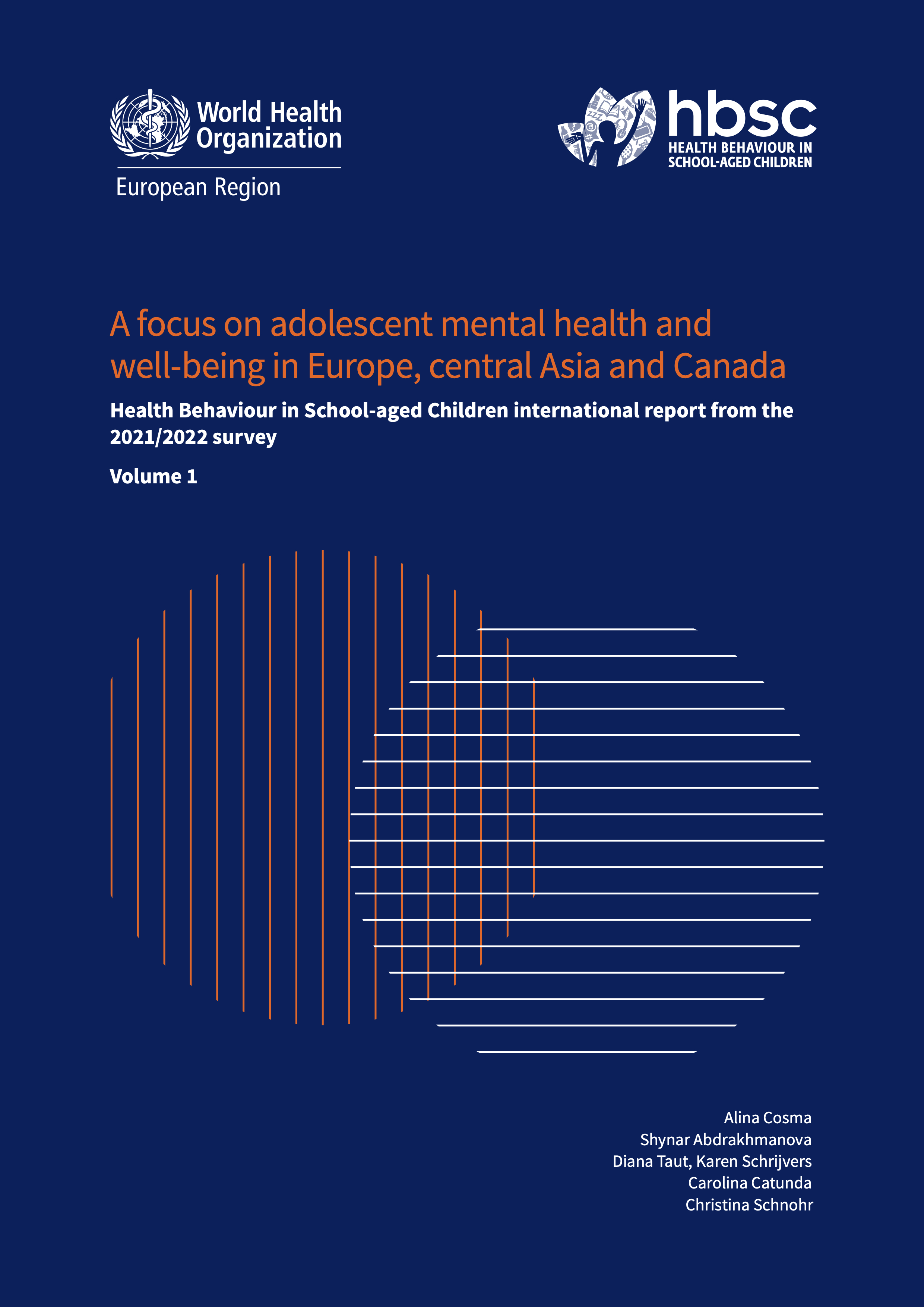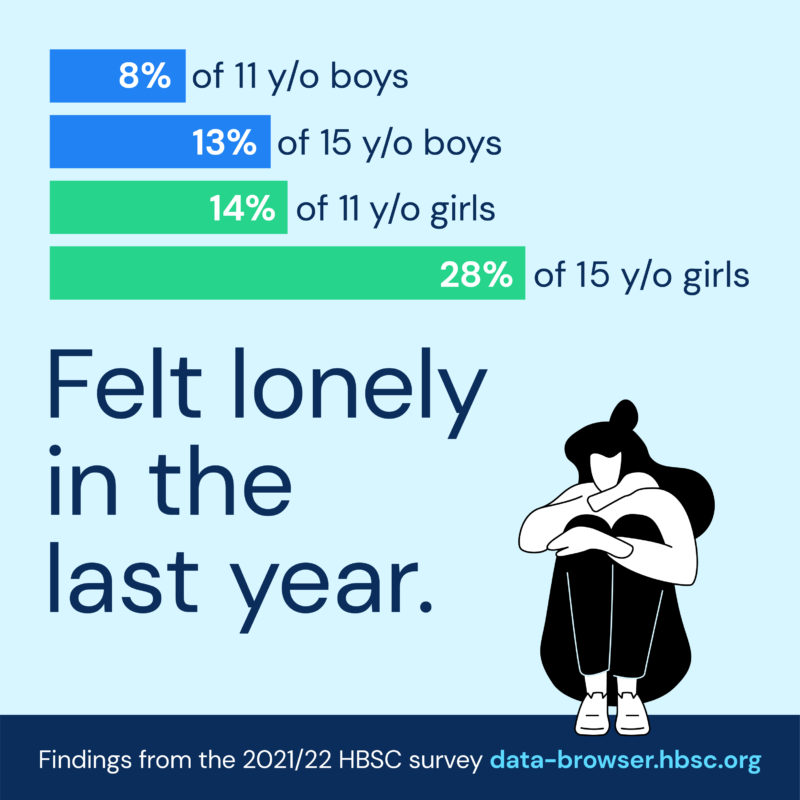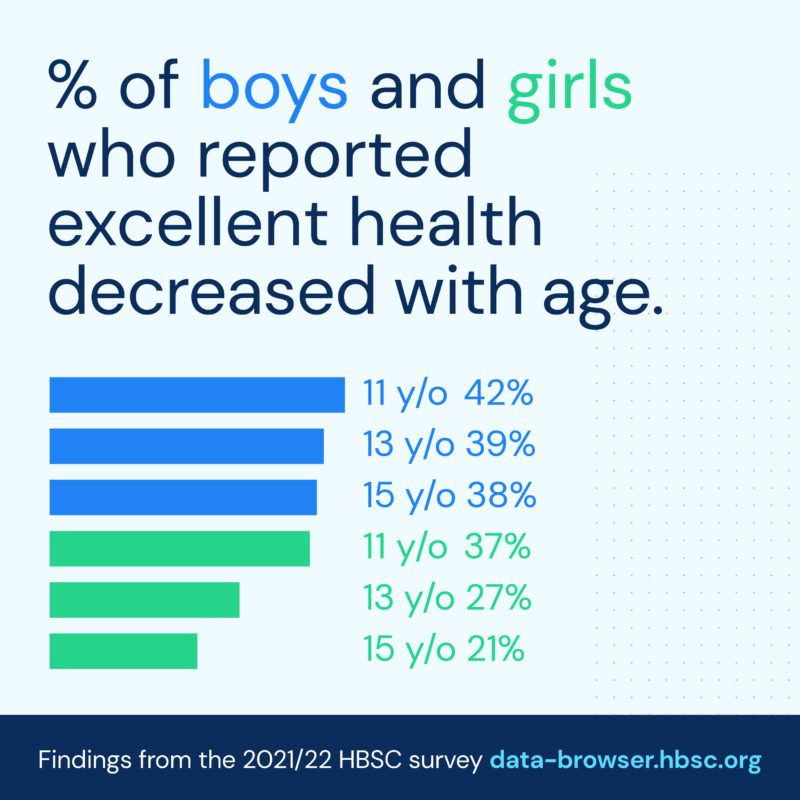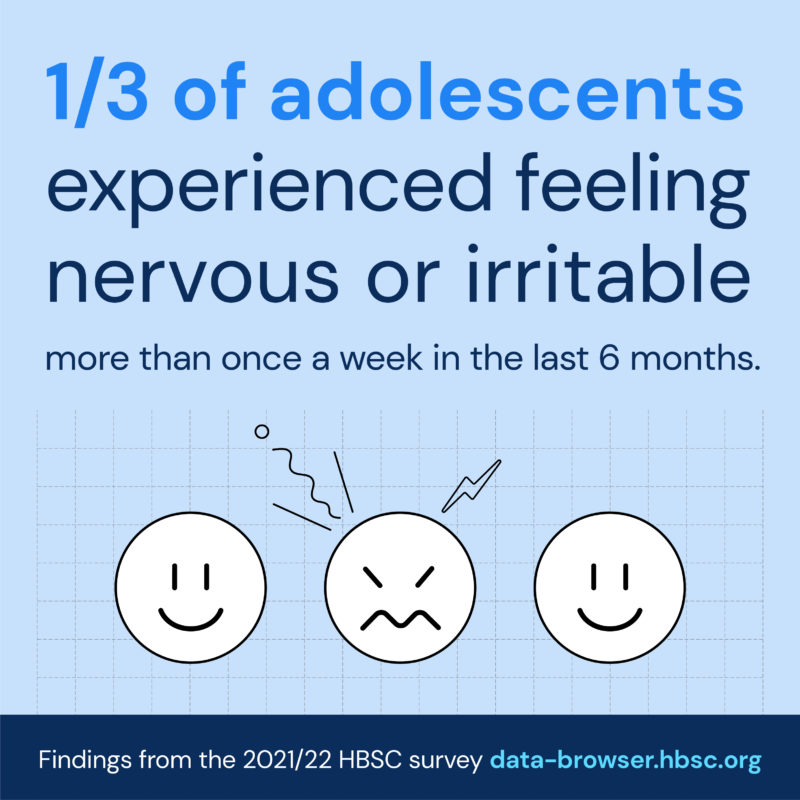Topic
Mental health
Adolescence is a period of immense change and growth, with young people navigating new emotions, social dynamics, and life experiences. This crucial stage of development significantly impacts mental health, encompassing positive well-being, life satisfaction, and emotional regulation. Understanding the factors that influence mental health during these formative years is essential for supporting healthy development and preventing long-term problems.
This section of the HBSC study explores various dimensions of adolescent mental health, including self-rated health, self-efficacy, loneliness, and specific health complaints. By examining these factors, we can gain valuable insights into the mental well-being of young people and identify potential areas for intervention and support.
Select one of the indicators below to view data.
Key Findings
Volume 1A focus on adolescent mental health & well-being

- Girls reported worse outcomes for mental health and well-being than boys across all outcomes included in the 2021/2022 Health Behaviour in School-aged Children (HBSC) survey.
- An increasing gender difference with age was observed for all the indicators examined.
- The proportion of adolescents who reported excellent health decreased with age. More boys than girls reported excellent health at ages 13 and 15 in nearly all countries and regions.
- Life satisfaction and mental well-being were higher among boys than girls across all three age groups in most countries and regions.
- Adolescents from more affluent families reported higher levels of life satisfaction and mental well-being across almost all countries and regions.
- Life satisfaction and self-rated health declined between the HBSC surveys in 2017/2018 and 2021/2022. This trend was more pronounced among girls.
- Girls consistently reported higher levels of loneliness than boys, except at age 11, where gender differences were found in six countries.
- Almost twice as many 15-year-olds (13% for boys and 28% for girls) than 11-year-olds (8% for boys and 14% for girls) reported feeling lonely in the last year.
- Girls reported more frequent health complaints than boys across all age groups.
- The prevalence of multiple health complaints increased with age, particularly among girls. At age 15, two-thirds of girls reported experiencing multiple health complaints compared with just over a third of boys. This gender gap is the largest since 2013/2014.
- One-third of adolescents (33%) experienced feeling nervous or irritable more than once a week in the last six months. One in four reported sleep difficulties (29%) and/or feeling low (25%). One in five (20%) reported having headaches more than once a week.
- The prevalence of 13- and 15-year-olds feeling low, having headaches and experiencing dizziness was twice as high for girls than for boys in most countries and regions.
Cite this data
Cite this report: Cosma A, Abdrakhmanova S, Taut D, Schrijvers K, Catunda C, Schnohr C. Focus on adolescent mental health and well-being in Europe, central Asia and Canada. Health Behaviour in School-aged Children (HBSC) International Report from the 2021/22 survey. Volume 1. Copenhagen: WHO Regional Office for Europe; 2023. Licence: CC BY-NC-SA 3.0 IGO.
Youth Commentary
“I think there’s a lot of girls who put themselves down because they’re like ‘am I good enough? Am I strong enough? Am I capable of doing things?’ And they put themselves down and beat themselves up for nothing. They don’t appreciate themselves for who they are.”
Girl, Scotland
Explore topics
Mental health
Bullying & violence
Substance use
Physical activity
Eating behaviours
Obesity & body image
Sexual health
Social media
Social contexts
Sign up for updates
Be among the first to access new international reports from the Health Behaviour in School-aged Children (HBSC) study, featuring 2021/22 data.
Complete the form to join our email alert list and receive notifications as soon as new reports are available. You can unsubscribe at any time by replying to one of our emails.
By clicking ‘Sign up’ you agree to receive email notifications about new HBSC study reports. For information about how we handle your data, please check our privacy policy.





